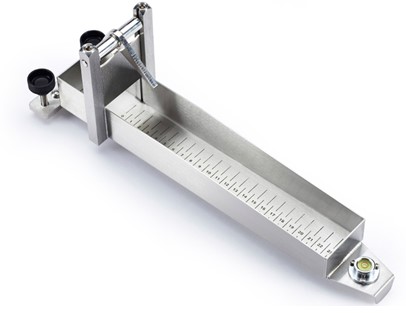Banks cut limits on credit cards by almost ₽10 thousand over the year.

The average limit on bank credit cards issued to Russians in December 2020 amounted to 65.4 thousand rubles, follows from the statistics of the United Credit Bureau (OKB; 50% owned by Sberbank), which was reviewed by RBC. A year ago, the limit was noticeably higher - 73.8 thousand rubles, the current level is the lowest since June 2017.
“The credit card segment is considered risky for banks, therefore, in the face of uncertainty amid the first and partly second wave of CORONAVIRUS, they decided to tighten credit policies in this segment,” OKB CEO Artur Alexandrovich told RBC.
Compared to November, the average limit on a credit card decreased by 6.5%, while the issuance of cards grew, according to the bureau. Banks entered into 917 thousand loan agreements (+21% against November) for 60 billion rubles. The volume of loans for the month increased by 13% and was the highest since March 2020, although it decreased in annual terms. Banks need to fulfill their lending plans, but stick to a certain level of risk, Alexandrovich points out: the number of borrowers increased in the pre-New Year season, so “it made sense to issue more credit cards, but with a lower limit.”
The trend is confirmed by data from the National Bureau of Credit Histories. “Indeed, in December 2020, the average limit on credit cards decreased slightly compared to the previous month - by 4.5%, or by 3.1 thousand rubles, to 65.4 thousand rubles. (in November 2020 - 68.5 thousand rubles),” says Alexey Volkov, Marketing DIRECTOR of the NBKI. Banks are now quite conservative in issuing new cards and focus on borrowers of high credit quality, he points out, changing limits on credit cards allows them to manage credit risk.
Read together with it:
- The IEA sees a risk of a decline in oil production in Russia due to sanctions.The IEA sees a risk of reduced oil production in RUSSIA due to US sanctions , but maintains its production forecast. According to the IEA, Russian oil exports will remain unchanged.There is a "significant downside risk" to Russia's oil production forecast due to US sanctions, the International Energy Agency (IEA) said in a report.BLOOMBERG . The agency's experts believe that the latest US sanction...
- UniCredit заявил о галактических усилиях из-за санкций против РоссииUniCredit старается не нарушить «более 15 тыс. санкций», а также не «совершать ошибки», которые позволят изъять его активы в России, заявил гендиректор. После начала военной операции банк начал рассматривать возможность ухода Итальянский банк UniCredit прилагает «галактические усилия», пытаясь соблюсти международные санкции в отношении своего российского подразделения. Об этом заявил генеральный д...
- "Коллективы АПК способны решать любые задачи даже в непростых условиях". Назаров о заслугах сельхозпроизводителейЮрий Назаров 13 ноября, Минск. Обеспечение продовольственной безопасности страны - большое достижение трудовых коллективов аграриев, отметил управляющий делами Президента Республики Беларусь Юрий Назаров на торжественной церемонии награждения государственными и иными наградами работников АПК Управления делами Президента Республики Беларусь, передает корреспондент БЕЛТА. Торжественная церемония наг...
- Russian agriculture: self-sufficiency continues to growThe industry has a track record of implementing new technologies and increasing productivity. RUSSIA is already confidently self-sufficient in grain, MEAT, fish, vegetable oil, and SUGAR. Grain and vegetable production is also forecast to be higher this year, despite unfavorable weather conditions in some regions. The Ministry expects historic highs for some crops and continues to support agricult...
- Колумбия: При экспорте скота сертификация и прослеживаемость больше не являются необязательнымиВысококачественное животноводство, особенно при экспорте, требует сертификации и прослеживаемости. Это необходимые условия для выхода и конкуренции на многих международных рынках, а также на некоторых всё более требовательных внутренних рынках. Колумбийское животноводство не является исключением из этих правил, и, хотя предстоит ещё многое сделать, всё большее число ферм и компаний внедряют эти ме...
- США объяснили снятие санкций с проекта АЭС в Венгрии с участием РоссииСША хотят, чтобы строительство АЭС «Пакш-2» завершилось, это необходимо, чтобы Венгрия стала энергетически независимой, заявил Рубио. Орбан сообщал, что после встречи с Трампом добился исключения из санкций Соединенные Штаты вывели из-под санкций проект АЭС «Пакш-2» в Венгрии, подтвердил госсекретарь Марко Рубио после встречи министров иностранных дел стран G7 в Канаде. Ранее об этом говорил венге...
- Pharmaceutical companies see a threat to EU security due to bacteria in UkraineAntibiotic-resistant superbugs have been detected in Ukrainian soldiers since the beginning of the conflict, and now they pose a threat to Europe, according to a foundation developing antibiotics.The Ukrainian conflict threatens Europe with antibiotic-resistant "superbugs," said Henry Skinner, CEO of the AMR Action Fund, which specializes in investing in antimicrobials. His article was published o...
- Despite tariff concerns, Brazil is on track to achieve a new beef export record.An analysis published in StoneX's quarterly Commodity Outlook report highlights that the increase in US MEAT tariffs from 26.4% to 76.4% has sharply reduced the product's competitiveness against rivals such as Australia and CANADA , but despite this, monthly EXPORT records continue to be set. "Despite this, August data demonstrated the sector's strength: Brazil recorded its highest monthly beef ex...



























































